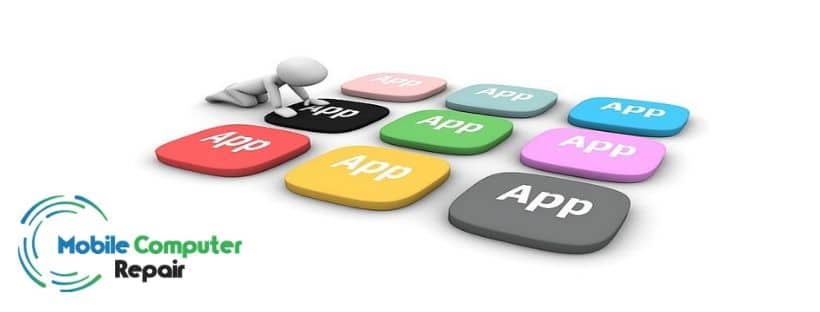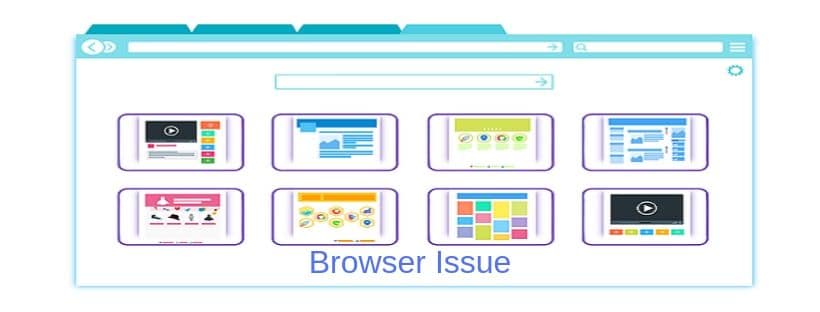With a computer and without much of troubleshooting gimmickry, you’re sure to ask at some point, “Why is my computer so slow all of a sudden?” Dozens of reasons are there to make you feel overwhelmed. So, here’s a list of 25 reasons precise explanations behind slow computer performance. Please note that the numbers are random and aren’t based, by any means, on the order of importance.
System Issues
If you don’t want to get your head full of technical talks, just pay heed to these ones as they appear more frequently than you may have heard.
#1 Too Many Programs at Startup: Slow computer startup? Slow Mac? The majority of downloaded programs want to find their spots in the background. But, you don’t need all of them as you start. So, disable them on ‘Startup’ menu as in Windows or ‘Login Items’ as in Mac. But, you want to keep the firewall, office applications, iTunes, and reliable antivirus programs.
#2 Loads of Cached Data, Junk and Temp Files: Day-to-day uses and no ‘cleaning’ operations lead to the accumulation of tons of temp files, app caches, and junk items which don’t do anything better than eating up space for many important processes. It ultimately causes your PC to work sluggishly.
#3 Faulty Registry: Sometimes, the registry may be the host of many errors and corrupt files and thereby becoming the silent yet powerful culprit behind slow computer startup and functions.
#4 Flashy/Sleek OS Customization/Personalization: Nothing wrong in loving the appearance but not essentially at the expense of the performance! Experts recommend the use of optimal settings that ensure performance and visuals seamlessly.
#5 Missing/Outdated System Files and Drivers: Some applications require up-to-date operating system files and computer drivers while the outdated ones will only add to your misery.
Third-Party Application Issues

Without the presence of these programs, our experiences wouldn’t be what they’re today. However, some applications may not be very good for your PC under certain circumstances.
#6 Overly Alert Antivirus Application: Some antivirus programs are more vigilant than others. These extra cautions lead to the blocking of some essential programs or features which may result in a slow computer.
#7 Resource-Hogging Programs in the Background: Programs that take too much of your system’s power may not allow others to work efficiently. It’s wise to keep those programs closed or end them when not in use.
#8 Existence of Adware/Malware/Virus: If anything that comes after a faulty hard drive with regards to your slow computer, it’s going to be some sort of adware/ malware/ spyware/ virus; you name it!
#9 Outdated and Rarely Used Applications: Programs that are obsolete or not used or updated in a while are a burden that lives on your system resources. Having a way too many programs isn’t a good thing either!
#10 Application Leftovers: Some programs leave their parts/shares to play around inside your system even after being uninstalled. Those leftovers may be the cause of a slow-performing PC.
Browser Issues
 A browser is more than an application. Don’t you agree? Let’s see how the browser may be responsible for your laptop running slow.
A browser is more than an application. Don’t you agree? Let’s see how the browser may be responsible for your laptop running slow.
#11 Too many Browser Add-Ons: Is your browser having add-ons in numbers way over its share of the RAM? It usually begets negative user experiences for many as they may need to reset their browsers to see them working well.
#12 Dozens of Tabs Open: Having many tabs opened at a time takes its toll on the RAM. In addition, keeping tabs of live websites/pages (news/sports websites) open often result in an unresponsive/freezing browser.
#13 JavaScript Issues: Some webpages use problematic JavaScript files which ultimately affect your browser’s usual rendering capability and thereby poor performance.
Hardware Compatibility/Insufficiency, Conflicts, and Issues
Hardware parts will see their ends, but you can enjoy extended serviceability by knowing how they may have something to do with the computer.
#14 Failing Hard Drive: The moving parts of a hard drive won’t last longer than a few years although the solid-state ones (SSDs) are known for their durability up to 10 years straight. Some drives come faulty right from the manufacturer.
#15 Maxed out Hard Drive (Full up to 95%): It’s a situation when you cannot expect more than half of your computer’s actual performance.
#16 Inadequate RAM Capacity: How much of RAM you need depends on how you use the PC. Here’s a breakdown of the requirements.
- 2GB: For average audio-visual experience
- 4GB: For productive activities on a basic level and good audio-visual experience
- 8GB: For most gamers and professionals (except animation and visual artists)
- 16GB: For animation and visual artists and high-end demanding games.
- 32GB and Higher: For workstations and overzealous users.
#17 Computer Using Low Power Settings: Higher performance demands higher power input. So simple! Just run a check into the settings and do adjustments as you need.
#18 Corrupted Data, Fragmented Hard Disk, and Bad Sectors: Hard drives may get heavily fragmented or have a lot of irrecoverable bad sectors. It may also contain corrupt data. Remember, the hard disk is the single most important component that affects your computer’s operational speed and efficiency.
#19 Overheating Processor: Maybe the cooler got busted or something is preventing it from its normal operation. Either way, the processor is going to get heated, sometimes extremely, which is a bad thing to allow.
#20 Backdated Computer Unit: With an out-of-date machine, you cannot expect fast operations. It’s advisable that you look for serious upgrades if the budget allows.
#21 Conflict in the Hardware: A particular components may not be compatible or in good formation with another resulting in a slow, malfunctioning system. A thorough inspection of the device manager is required.
Issues Associated with Users’ Behavior
These problems are often the consequences of our own actions. How we use the units and treat them to determine whether or not these undesirable occurrences come up.
#22 Computer Not Restarted in a While: A simple restart of the system may be the key solution to a lot of issues like freezing and unresponsive programs, unresolved functions, etc.
#23 Slow Broadband Speed: Sometimes, a slow broadband connection may slow your system down to a disgusting state. However, experts are divided in their opinions as to the belief that some spyware programs are the chief players, not essentially the broadband speed.
#24 Large Files in Progress in Downloads: Files that are way too big may be the reason why your computer might start working slowly. Although it’s not very common, files that exceed 2GB in size should be avoided while you’re using other applications.
#25 Dirty Room: Is your room the breeding ground/home to dirt, dust, insects, hair, etc.? These external factors may prevent the processor from operating as it should, especially during the initialization and functioning of large applications like Adobe programs. Don’t forget it’s either your creation or the result of your negligence.
So, you may not bother asking anyone, “Why is my computer so slow all of a sudden?” Now, you might be interested in slow computer fixes. A lot of considerations matter before you want to learn how to speed up computer. So, you can always get insights from our blog, or even contact us for professional repairs and services.

